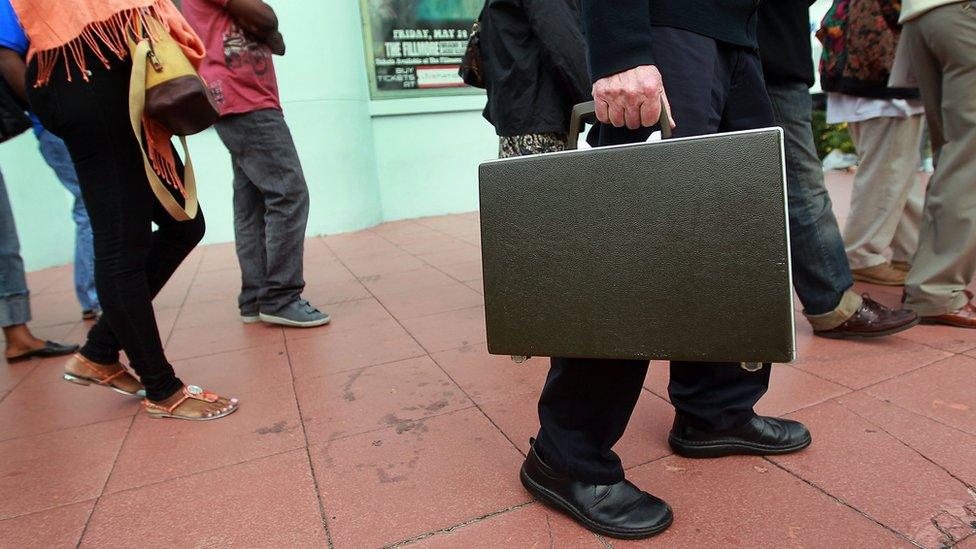Let councils run academy chains, say MPs
- Published
- comments

Of England's 21,525 state schools, 5,758 are academies
Local authorities in England should be able to form their own academy chains, MPs have said.
The Commons Education Committee report echoes councils' calls to be allowed to use their expertise to help boost performance in failing academies.
The government wants all English schools to become academies, independent of local councils and funded direct by Whitehall.
Ministers say there is no legal basis for councils to sponsor academies.
When schools become academies, they are overseen by academy trusts, and increasing numbers are part of chains, otherwise known as multi-academy trusts (Mats).
These are responsible for providing their academies with advice, support, expertise and a strategic overview.
What does it mean to be an academy school?
As of March last year, almost two-thirds of England's 5,758 academies and free schools were in Mats.
But there are significant concerns about the performance, accountability and expansion of multi-academy trusts, according to the MPs' report.
"There remains a high degree of uncertainty about the effectiveness of Mats, and there is not yet the evidence to prove that large-scale expansion would significantly improve the school landscape," says the report.
"Only time will tell whether multi-academy trusts are more successful than local authorities at creating and supporting high-performing schools and tackling underperformance."
The numbers of Mats almost trebled from 391 in 2011 to 1,121 in 2016, and the government envisages that most schools will have converted to academy status and joined a Mat within five or six years, says the report.
But MPs say the government has "a long way to go" to demonstrate that public money spent on academies "is being used effectively".
They also want Ofsted to have the power to conduct full inspections of Mats, instead of focused inspections of schools within Mats.
Ofsted's latest annual report, external found some trusts "showed the same weaknesses as the worst performing local authorities".
Pupils in schools run by these trusts made poor progress, leaders overestimated teaching quality and the trusts lacked strategic oversight and the will to tackle weak leadership, Ofsted found.
'Step in'
Neil Carmichael, who chairs the committee, said that while some trusts produced excellent results and made "a valuable contribution to our education system, a considerable number are failing to improve and are consistently at the bottom of league tables".
"If the government is to pursue the goal of further academisation, it will need to work with local authorities and allow those councils with a track record of strong educational performance to use their expertise within their education department to create MATs," said Mr Carmichael.
The Local Government Association, which represents councils in England and Wales, said that with 91% of council schools now rated good or outstanding by Ofsted, it was time for the government to recognise councils' record in school improvement.
Richard Watts, chairman of the LGA's Children and Young People Board, said allowing local authorities to set up trusts would mean that parents worried about an academy could be sure that "the council and its directly elected councillors, who know their local schools and the communities they serve better than anyone else, will be able to step in and help".
The Department for Education said there was no legal framework to allow councils to run MATs as fewer than 20% of members and trustees are allowed to be "local authority influenced".
However, a spokesman added that local authorities could be part of a MAT "with up to a fifth of its board having links to their local authority".
"We encourage all trusts to work collaboratively and the best already do so, but maintaining their independence is a crucial part of encouraging the innovation that has driven up standards in so many schools," said the spokesman.
- Published10 February 2017

- Published7 November 2015

- Published27 October 2016

- Published7 July 2016

- Published6 May 2016

- Published25 April 2016

- Published15 March 2016